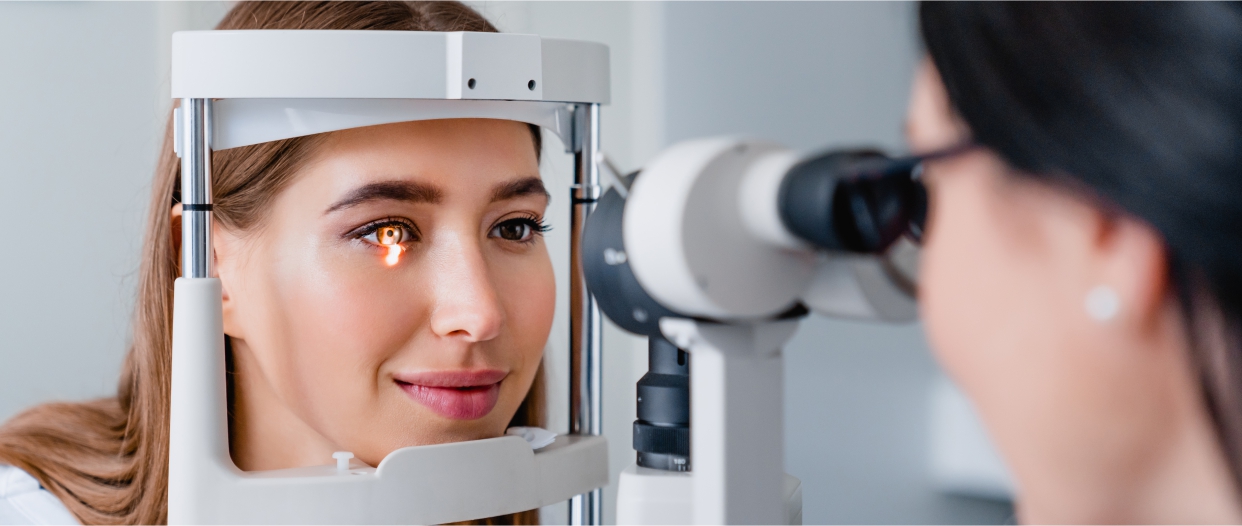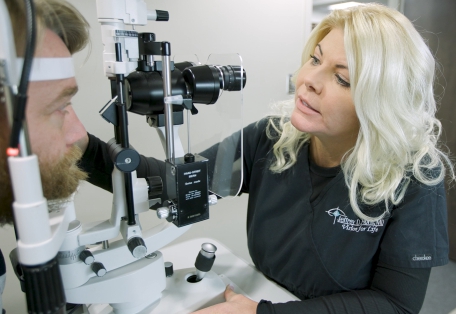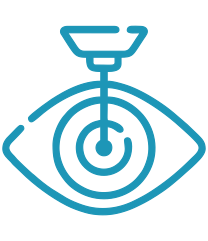

At Vision for Life, our mission is to let you experience the joy of clear vision! We are Nashville’s premiere vision correction center specializing in advanced LASIK. Led by award-winning and internationally renowned eye surgeon Dr. Jeffrey D. Horn, MD, Vision for Life provides advanced eye care in a professional, personal environment, prioritizing comfort and satisfaction. We are committed to delivering exceptional vision results through cutting-edge technologies, such as the WaveLight EX500 LASIK laser and Contoura Vision (topography-guided LASIK).
More and more people in the Nashville area are choosing LASIK because of the following benefits:
Vision for Life provides excellence in vision correction under the expert leadership of Dr. Jeffrey Horn, an internationally renowned and award-winning eye surgeon. For those considering LASIK surgery, here’s why Vision for Life has become the preferred choice:
Can you imagine living your life free of glasses and contacts? That is the reality with LASIK. LASIK is a simple and brief outpatient procedure. Within minutes, you will be enjoying 20/20 or better vision! LASIK is an acronym for Laser in Situ Keratomileusis. LASIK is the most common form of laser vision correction and the most effective elective procedure in the world. For over 30 years, Ophthalmologists like Dr. Horn have perfected the procedure and can now easily correct nearsightedness, farsightedness, astigmatism, and presbyopia.
The technique creates a flap on the eye’s surface to provide Dr. Horn access to the cornea. At Vision for Life, we use the most state-of-the-art LASIK technology: the Wavelight EX500 LASIK laser and Contoura Vision – topography-guided LASIK treatment. The Wavelight EX500 laser is used to modify the cornea to improve vision and reduce or eliminate the need for eyeglasses and contact lenses.

The laser system is designed with a precise tracking system that ensures that changes are only made to the exact locations of the eye that affect vision. Once Dr. Horn is satisfied with the corneal shape, the flap is returned to its position. The flap re-seals to the eye within a few minutes. The procedure takes approximately 10-15 minutes for both eyes. Your vision is restored within a few hours.
LASIK surgery helps treat the following vision problems:



Initial consultation with Dr. Horn – LASIK always begins with a free consultation. Call us at (615) 588-2020 to schedule your consultation at Vision for Life. We provide a complimentary consultation that’s a valuable opportunity for you to talk about the surgery with Dr. Jeffrey Horn, one of the best LASIK surgeons in Nashville.

Pre-operative eye exam – If LASIK is a good fit, Dr. Horn will conduct a comprehensive pre-operative examination. During this exam, he will measure many things, such as corneal mapping, eye dominance, pupil size, and muscle balance. He will also examine your tear film, retinas, and optic nerves, among other things. Through this exam, Dr. Horn gets the measurements needed to create an individualized treatment specific to the patient’s visual needs.

Day of Surgery – Dr. Horn will numb your eyes using anesthetic eye drops. This keeps you comfortable, and you will only feel slight sensations of pressure during the procedure. You will be given protective glasses after the procedure, and someone will need to drive you home. We’ll schedule a postoperative follow-up appointment for the next day to evaluate your eyes and monitor your healing.

Postoperative follow-up – You will undergo your first post-LASIK eye exam a day after the surgery. Dr. Horn will check several things using various tools, such as a slit lamp. He will use reading charts to test your vision, progress, and performance. To measure your reactions, he will expose you to bright lights. He will also look for evidence of dry eye by assessing your tears.
Ready to experience amazing eyesight and newfound visual freedom? Schedule your complimentary LASIK consultation today! Call us at (615) 246-6494 or fill out the form below, and a member of our staff will be in touch shortly.
The staff at Vision for Life pride themselves on thoroughly educating each patient about their procedure. Here are a few ways to best prepare yourself for your LASIK procedure:
Following these recommendations will prepare you well for the LASIK procedure.
Dr. Horn will numb your eyes using anesthetic eye drops. This keeps you comfortable, and you will only feel slight sensations of pressure during the procedure. You will be given protective glasses after the procedure, and someone will need to drive you home. We will schedule a follow-up appointment for the next day to evaluate your eyes and monitor your healing.
At Vision for Life, our goal is to correct your vision to 20/20 or better! With the expertise of Dr. Horn, the most state-of-the-art LASIK technology, and our highly trained staff, Vision for Life is more than prepared to lead you on your journey to clear sight.
The effects of LASIK are generally permanent, letting you enjoy the freedom of not needing contact lenses or glasses anymore. Compared to other vision correction procedures, LASIK is relatively quick and pain-free. Moreover, with LASIK, you can notice improved vision clarity immediately after the procedure. Complete recovery and stable, clear vision are restored within a few days of the surgery.
You can return to your usual activities the next day after you have your post-op appointment. However, you must keep yourself in a clean environment. To minimize the chances of dry eyes after LASIK, use artificial tears regularly for a few weeks, especially if you spend much time in front of a computer screen.
LASIK has a very low complication rate (less than 1%) and is generally considered a safe procedure. At Vision for Life, Dr. Horn takes every precaution and uses the latest technology to ensure you do not experience any side effects after the procedure.
LASIK is a permanent procedure. So, the results do not wear off for many years. How long LASIK lasts depends on your age and the rate of your eye deterioration. Generally, LASIK lasts about a decade (10 years) before natural deterioration in eyesight.

©Vision for Life, 2025 Accessibility Disclaimer Privacy Policy Privacy Settings Cookie Policy Terms of Service


